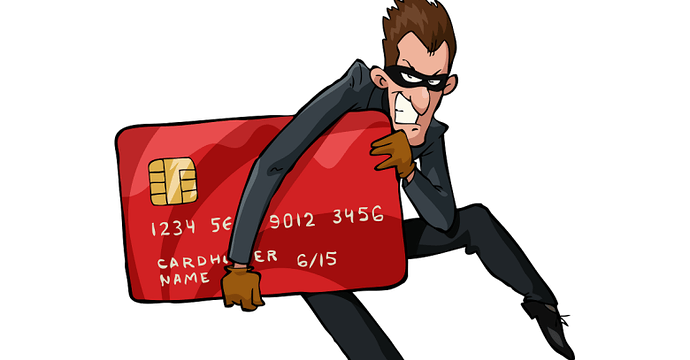If you have never had a chargeback for fraud you are lucky! Unfortunately it is part of doing business that you can be the victim of fraud.
Outright fraud is often committed by a buyer with stolen credit cards. There are two victims: the person who had card info stolen and the merchant doing the selling. Plain and simple there is nothing you as a seller can do once you are a victim of outright fraud. If a credit card was used the company will always side with the individual whose card was stolen and will pull the money from you holding you accountable for making the sale in the first place. No amount of using one credit card merchant over another will save your money.
So what can you do? Avoid being involved in a deal that could be fraudulent in the first place!
Easier said than done right? Well yes and no. You just have to work to make sure a sale isn’t more important the knowing who you are selling to. Prevention is the name of the game.
Here are some helpful tips I hope help people avoid getting into a fraudulent situation in the first place.
1.) Delivery to a hub for pickup
Hub pickup requires a photo ID and is under video surveillance by the location. Despite the inconvenience someone who cares about the animal and who is not doing anything fraudulent will go pickup a purchase. If they aren’t willing to that can definitely be a sign you should consider not going through with the sale (red flag that things may be fraudulent). We ship several hundred animals each year and don’t regret missing a potential sale where we refused to ship to someone’s home.
2.) Only ship to the person on the payment method and the associated address
Be it PayPal or credit card shipping to the hub closest to the person and their payment method address is a given. If they ask to have a “friend” or “significant other” pick up for them or ask for a completely new address not listed on any of their info then that is another type of red flag saying you should potentially look for another buyer or ask more questions.
3.) Match ID and Payment info
If selling online or at a show make sure the person you are selling to, their ID, and their credit card info match. Not always necessary given some of the other steps described or the situation but definitely something that’s good practice if you are feeling fuzzy about the sale. I for instance now only process credit cards manually so I can ask for the zipcode of the buyer and match it up to where I’m shipping and their ID. If they don’t match I ask a lot more questions.
4.) Get to know your customer/buyer
Some other things to keep an eye out for are really relative to building a relationship with someone who wants to buy from you. If they are a reptile fan they will want to talk to you on the phone, have questions, be interested in your breedings, have references they want to brag about having, etc. If they just want to do the deal and nothing else, that’s another red flag that something may be off. Some other things that can help you in this regard:
- How long have they had an account? (facebook, MM, etc)
- What’s their contact info/email (can I email them directly and does it seem semi-
normal…not bigpoppapump69@gmail.com) - How often/well do they respond after I respond? (is it reasonable etc)
- Do they want a payment plan? Outright fraud will pay in full (no payment plan) to get the
animal quicker before the stolen card is discovered. - Does their info match and if not talk to them about it and see how they react?
- Are they willing to talk on the phone or hesitant etc?
In the end both selling and buying is a matter of trust but hopefully talking to the people you are working with (both buyers and sellers) can help make new connections and make it more difficult for scammers.
Hope this helps!
John Dague
JD Constriction

 lover… good read guys especially right after watching you guys on YouTube best black and white snakes out there sorry can confidently spell “exanthic”
lover… good read guys especially right after watching you guys on YouTube best black and white snakes out there sorry can confidently spell “exanthic”
 . I do all of my shopping online from Amazon to food orders. Im not trying to be difficult or sound rude just being real. I don’t got the luxury of being able to just hop in a car and go to the store or wherever. So thats something to consider as a seller, what might cause undue hardship to a buyer. I have visual impairment and lack depth perception so i cannot have obstructed view. Thanks for hearing my perspective
. I do all of my shopping online from Amazon to food orders. Im not trying to be difficult or sound rude just being real. I don’t got the luxury of being able to just hop in a car and go to the store or wherever. So thats something to consider as a seller, what might cause undue hardship to a buyer. I have visual impairment and lack depth perception so i cannot have obstructed view. Thanks for hearing my perspective